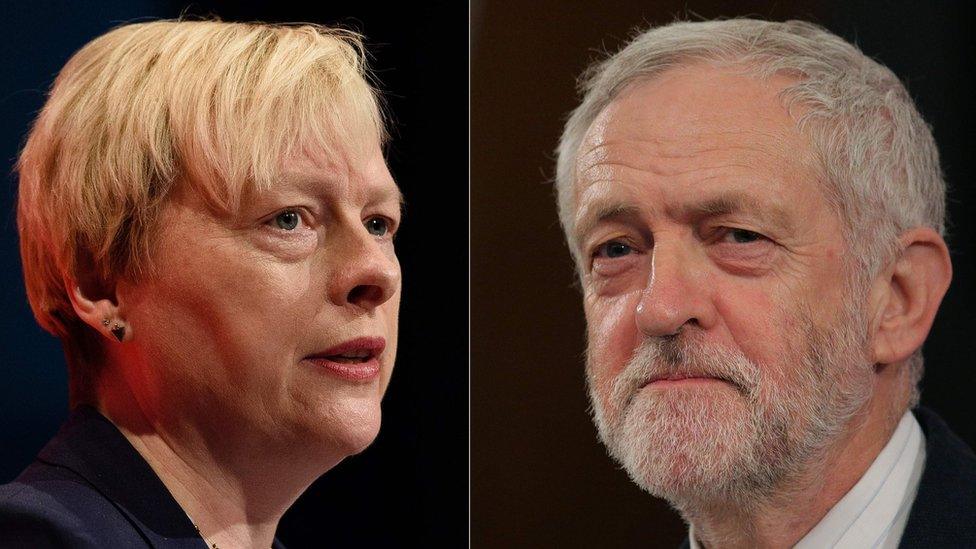Labour leadership: Legal action against Corbyn ballot vote
- Published
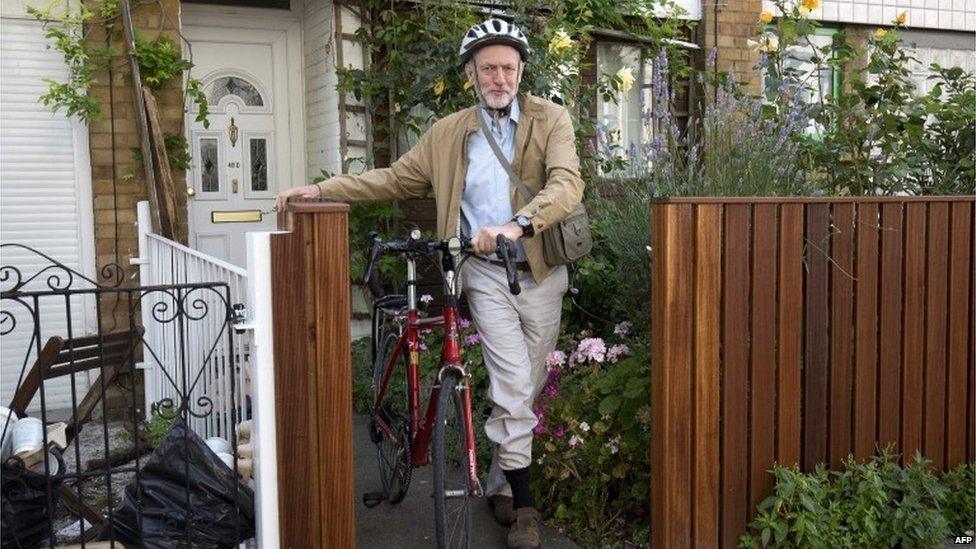
Jeremy Corbyn leaving his home - the Labour leader is not attending the court hearing in person
A legal challenge to Jeremy Corbyn's right to automatically stand in the Labour leadership has been heard at the High Court in London, with a decision expected to be handed down on Thursday.
Donor and former candidate Michael Foster is contesting Labour's decision to allow Mr Corbyn on to the ballot paper without having to secure nominations from 50 other MPs and MEPs.
Labour's National Executive Committee backed the move by 18 to 14 votes.
Mr Corbyn is taking on Owen Smith.
As a challenger, Mr Smith, a former work and pensions spokesman, had to win the backing of 20% of Labour's MPs and MEPs to be eligible to stand - a hurdle he overcame easily.
But the NEC's decision that, as the incumbent, Mr Corbyn did not have to adhere to the same requirements has proved controversial.
The NEC backed Mr Corbyn's automatic inclusion following a highly charged meeting earlier this month. Labour's ruling body, of which Mr Corbyn is a member, is reported to have taken a range of legal opinions before making its decision.
Mr Foster, who unsuccessfully stood in the seat of Camborne and Redruth at the last general election, has expressed concerns about "apparent manipulation" of the party's rules and questioned whether the legal advice was given proper consideration.
'Unhelpful'
Lawyers for Mr Foster told the High Court on Tuesday that Labour and Mr Corbyn made a "very problematic interpretation" of the party's rules.
Gavin Millar QC said there was no concept of "incumbent" or "incumbency" in the party rules. "There is no distinction in the rules between the leader candidate to be automatically on the ballot paper or the challenger candidate," he said.
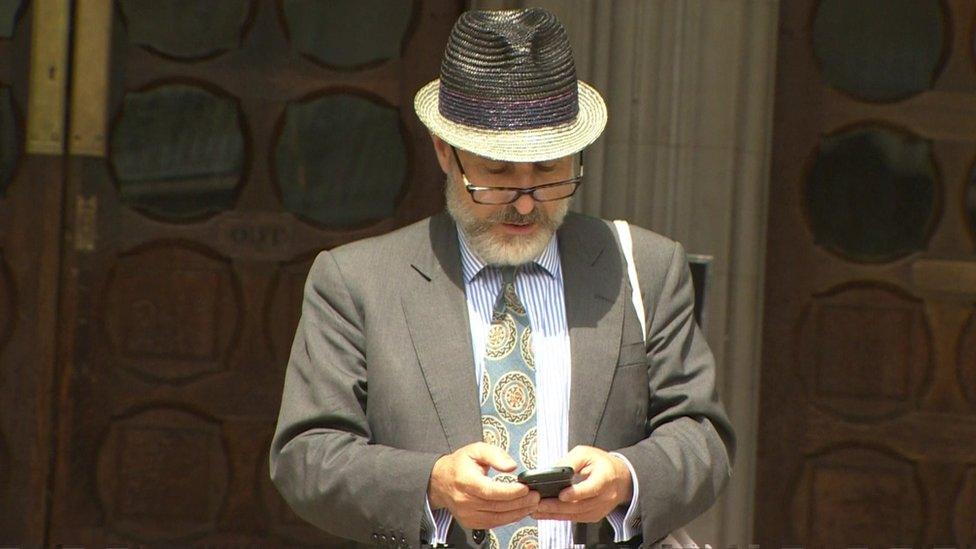
Michael Foster has suggested Labour did not give proper consideration to the legal advice it received
Mr Millar said: "There's nothing whatsoever unfair to a leader to expect him or her to gather or have a minimum level of support in the combined group [of Labour MPs and MEPs] if the leader wants to stand again in the teeth of the challenge.
"It goes with the job description to maintain that minimum level of support in the PLP (Parliamentary Labour Party)."
Appearing for Labour's NEC, Mark Henderson said precedent suggested courts were wary of intervening in voluntary unincorporated associations such as the Labour Party except where their rules have "incoherence".
He said the rules were "not ambiguous nor open to serious doubt", and that there was no "custom, precedent nor practice" which suggested Mr Corbyn should be stopped from automatically going forward to a ballot of members.

Analysis by BBC political correspondent Iain Watson
The court case has huge implications for Labour.
Its ruling body - the National Executive Committee - put Jeremy Corbyn automatically on the leadership ballot but Michael Foster believes the party leader should have to seek the same number of nominations from MPs as his challenger.
That might be difficult for Mr Corbyn to achieve so if he loses the court case he could potentially lose his job too.
Mr Foster's QC argued there was no concept of incumbency in Labour's rules or anything which in terms was designed to give an incumbent leader an advantage and that all candidates should be treated in an even-handed way. In other words, that Mr Corbyn should not be exempt from seeking nominations from his fellow MPs.
But counsel for Labour's general secretary argued that the courts should be wary of intervening in the affairs of a major political party and that the intention of the rules was not to exclude the democratically elected leader from the ballot if challenged

Martin Westgate, the QC representing Mr Corbyn, said the rules as they stood existed to prevent Labour MPs choosing the leader without a ballot of party members and supporters.
Any change, he said, would be a "major, substantial shift", arguing the judge had no reason to "disturb" the current rules unless they were unreasonable.
At the end of the hearing, the judge, Mr Justice Foskett, said that he hoped to hand down his judgment on Thursday, when he will also consider any application for permission to appeal.
The outcome of the leadership election is due to be announced on 24 September.
It emerged on Monday that Labour is facing legal action from people who have joined the party since the EU referendum after the NEC decided that only those who signed up on or before 12 January could automatically vote.
Solicitors Harrison Grant said they had issued proceedings against the Labour Party "on behalf of a number of new members who have been denied the opportunity to vote in the forthcoming leadership election".
More-recent joiners were given the opportunity to vote by becoming registered supporters at a cost of £25 each.
- Published21 September 2016
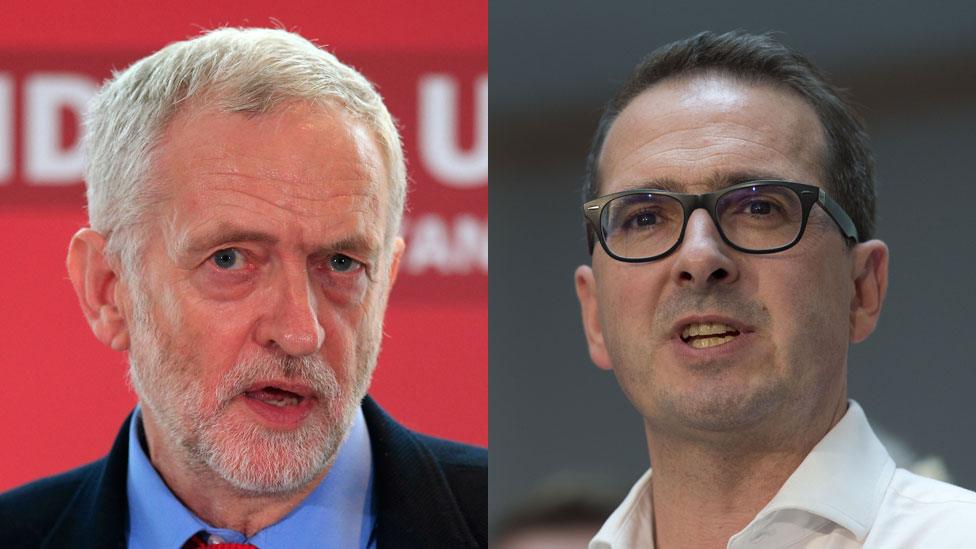
- Published14 July 2016
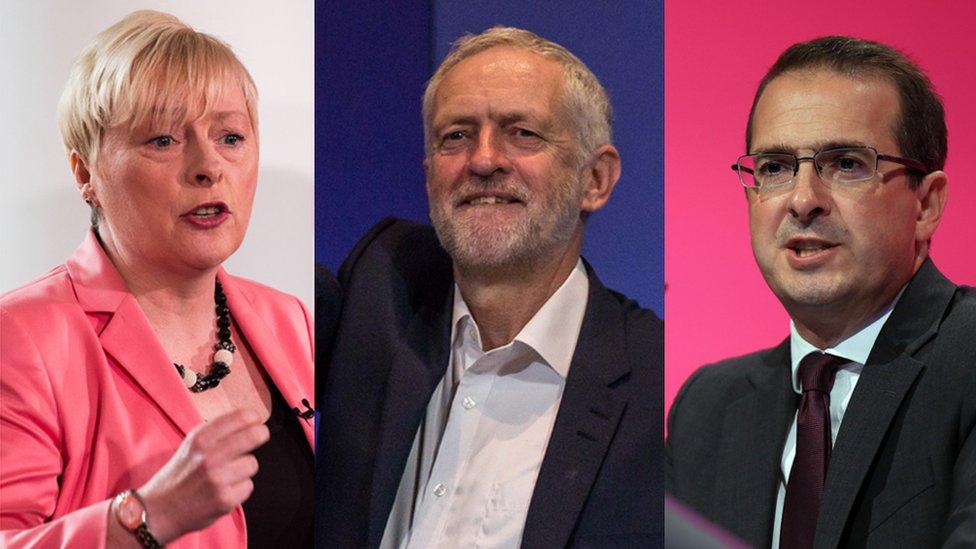
- Published12 July 2016
